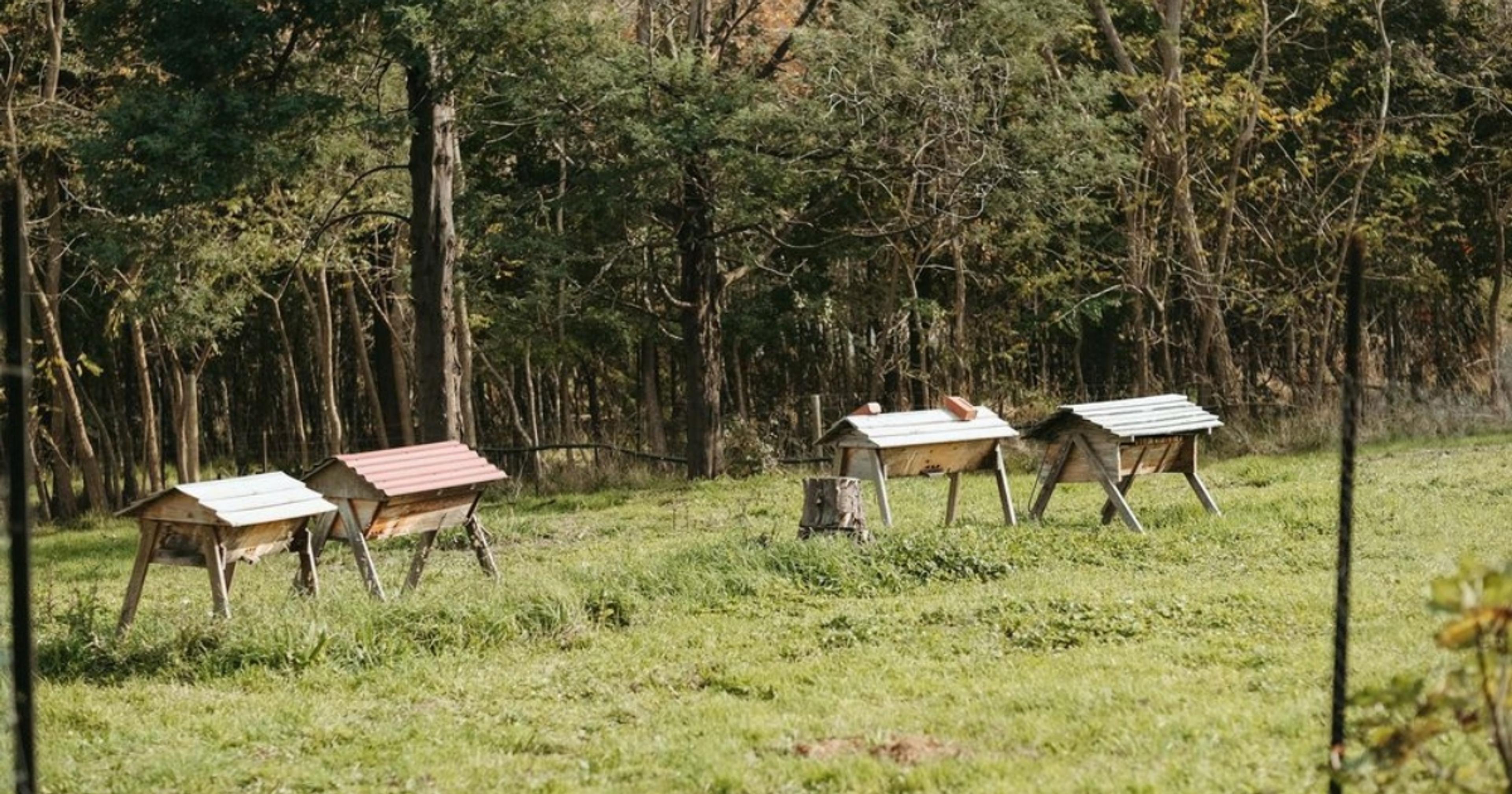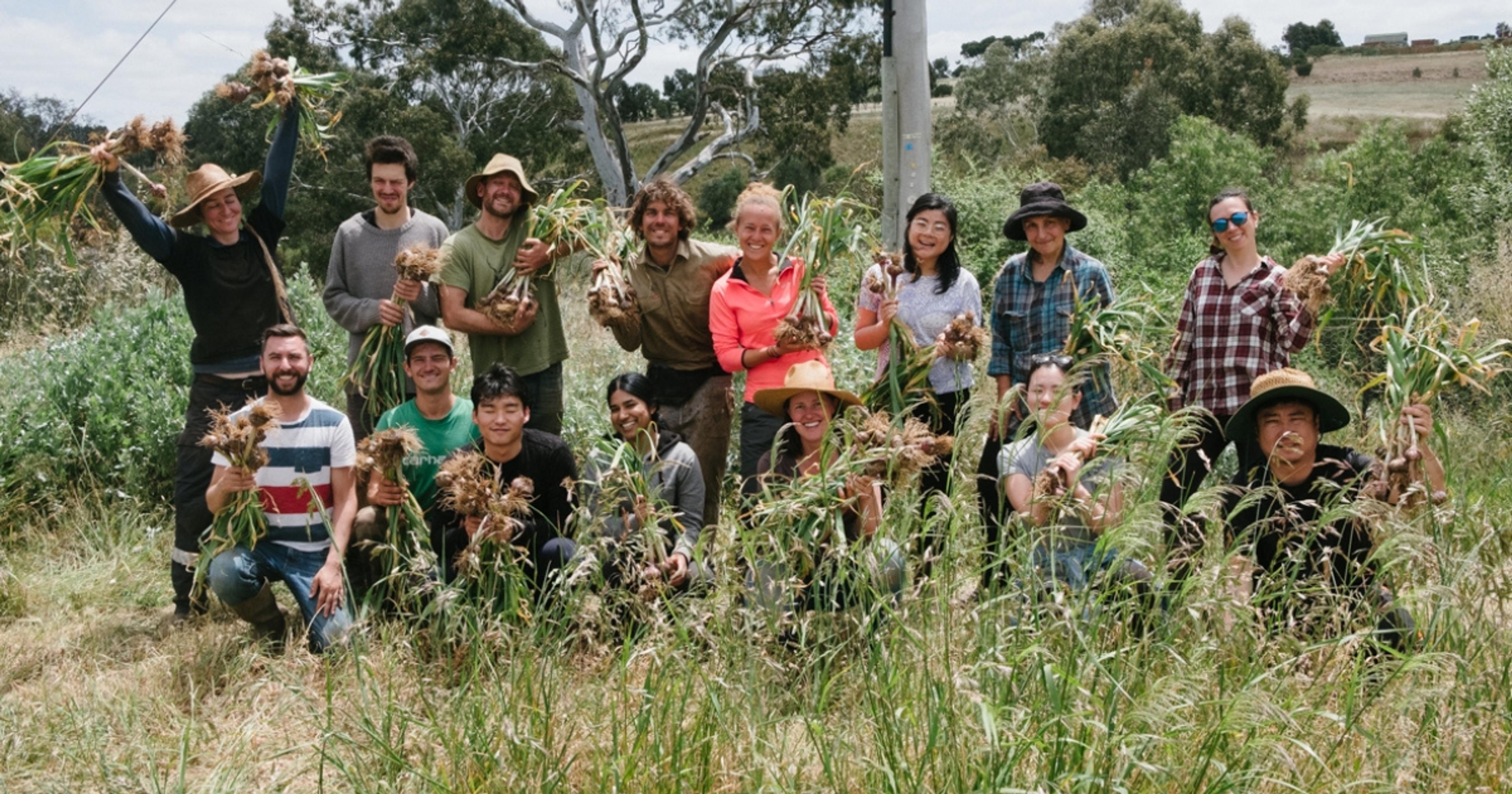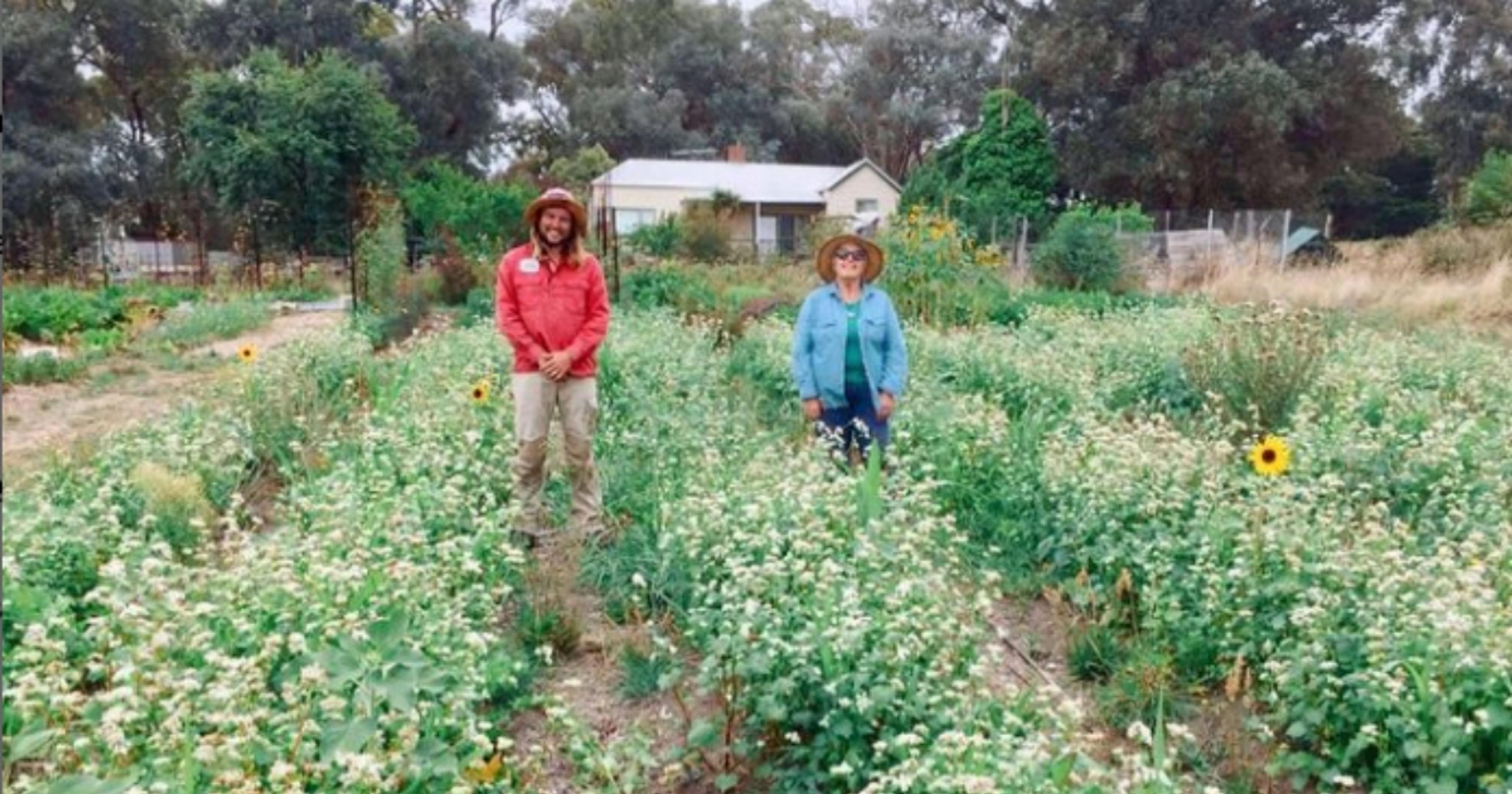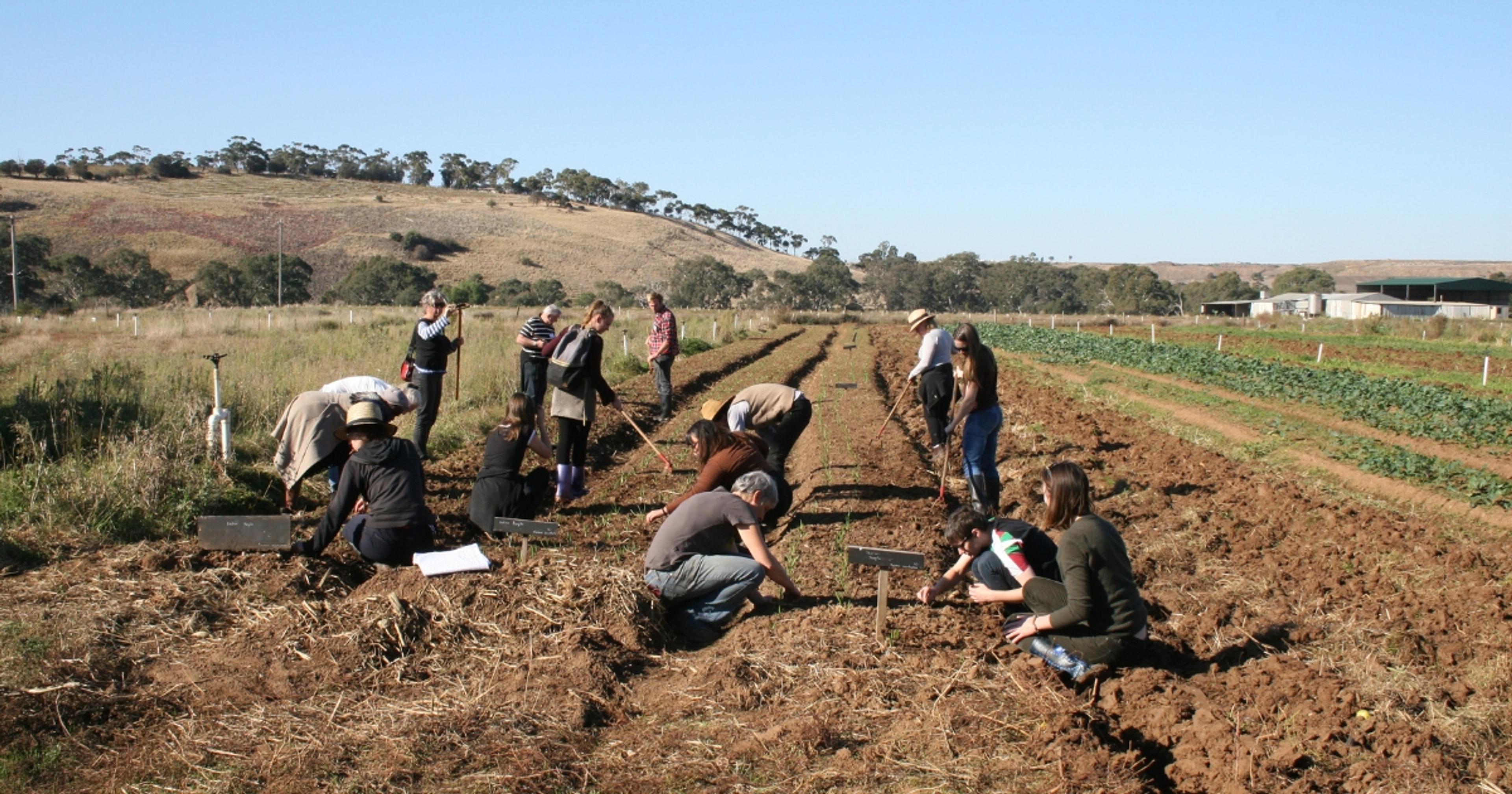Rehabilitating The Food-Industrial Complex
‘Rats and roaches live by competition under the laws of supply and demand; it is the privilege of human beings to live under the laws of justice and mercy.’
— Wendell Berry
A distorted food supply network became even more apparent in the pandemic, where supermarket stocks were ravaged and farms reliant on working holiday visa holders experienced labour shortages. With a country as biodiverse as Australia, why do we still have such a warped perception of the supply chain?
Founded in Victoria in 2013, Farmer Incubator is a volunteer-run support organisation for small-scale, next-generation farmers looking to enter agriculture sustainably. Through a regenerative, agroecological approach that favours the wellbeing of humans and the environment, the group provides business and agricultural education, land, and practical farming programs to new practitioners. Providing skills workshops, mentoring, and short-term leases for pop-up micro-farms, it’s the precise antidote to what they describe in their 2021 report (an investigation started in 2019 into barriers of entry to local farming titled Regeneration: Growing New Farmers) as a crisis of big-ness: the assumption that ‘to succeed in Australian agriculture today means you need to go big - big acres, big debt, big machinery, big tech, big corporations, big global supply chains.’
The report - completed in conjunction with Young Farmer’s Connect and that interviewed 25 new and aspiring farmers and surveyed 226 others - concluded that there were six main challenges that small-scale, regenerative farmers face: access to land, access to capital, access to hands-on learning pathways, social isolation, lack of dedicated funding and support systems, and impending climate risks.
There are several ways Farmer Incubator tackles parts of these issues already. Their work is centred around four core tenets: regenerative farming; farming embedded in local and regional food systems; hands-to-earth practitioners; and farmer incubator initiatives. A staple of this offering is their signature pop-up garlic farms, which are held on short-term leased land that allows aspiring farmers to see a complete crop cycle from seed to market.
The group is just one part of an expanding network of independent farming organisations leading a transition to a locally-produced, regenerative food system led by small to medium-scale farmers such as the Australian Food Sovereignty Alliance, Young Farmers Connect, Sustain: The Australian Food Network, local chapters of the international Slow Food organisation.
By championing an agricultural model that treats community and ecology as interrelated systems, these groups and collectives exist to support growers in creating a hyperlocal alternative to the mass consumer supermarket systems to which shoppers are accustomed.
Beck Rafferty, volunteer and farmer with Farmer Incubator, explains further.
SG: What is the ‘fairer future food system’ that Farmer Incubator is building?
BR: Regenerative practices and relationships between small-scale producers and their local communities are at the centre of the kind of food system we want to build. Our current food system, on the other hand, is depleting our ability to feed ourselves into the future. A fairer future food system would, for us, embody an ethic of care, not only for the soil and ecologies in which we live, grow and participate, but by extension, for the community of folk, we feed and share land with.
Regenerative as a label risks becoming co-opted, but in its true sense, it captures for us the way that a system can be generative of itself, ongoing. A regenerative approach respects the inherent wisdom of the being, place or system. In farming, this is largely about knowledge and respect for the communities involved in that place and the relationships between them, ever moving towards a richer, more alive landscape. We focus on supporting farmers because without them, we can’t grow a more regenerative food system or foster land management practices that underpin such a food system.
The fairer food system we envision takes this care ethic beyond the farm to the distributors, the pickers and packers, the sellers and eaters. We seek small-scale, local and context-specific relationships. COVID-19 showed us the ability of small-scale, direct-sale producers to quickly adapt and respond to the changing needs of consumers, where the long, traditional supply chains were disrupted. This ability to change, to respond to on-the-ground needs, to consider one's impact and adapt accordingly are all key to a resilient and, therefore, fairer system, particularly in the face of a changing climate and the unpredictability this brings.
This vision of a fairer food system would be incomplete without acknowledging our settler-colonial history, that agriculture has been at the forefront of Indigenous genocide and dispossession and that we are farming, living and learning on stolen land. These truths demand action - both in changing the ways this history continues to play out today and in finding an ongoing role in how to be active allies for Indigenous food and land justice.
Food sovereignty is a big piece of this, too. This is largely about individuals having access to culturally appropriate food produced in ways that enhance the health of people and place. It raises issues such as the right to save seed, rather than it being patented and owned by corporations, and for supportive and appropriate legislative processes regarding the right to process and produce food as opposed to regulations catering to large-scale, industrial models alone. Collective ownership and determination of our food system is key.
"Regenerative practices and relationships between small-scale producers and their local communities are at the centre of the kind of food system we want to build"
SG: How has the mission and organisation evolved since being established in 2013?
BR: We are currently at an exciting juncture in the life of Farmer Incubator. Building on the success of our Pop-Up Garlic Farmer (PUGF) Program and the insights gleaned from our research report, we have now received funding from Sustainable Table and The Morris Family Foundation to develop our capacity.
We have come a long way from our beginning of just three founding volunteers, to now having part-paid roles. This new capacity means we have a chance to step back and consider how best to grow our reach and find other ways to create support structures for newer growers. It’s an exciting time as the regenerative agriculture movement is expanding rapidly bringing more opportunities for collaboration and collective action.
SG: So what is ‘agroecology’ and how does it relate to the work Farmer Incubator does?
BR: For us, it encompasses the scientific discipline of agroecosystems in a holistic way: a social movement that examines agriculture and its wider relationship with society. It includes a set of practices that strengthen the resilience and health of farming systems at a cultural, socio-economic and ecological level.
Agro-ecology enables us to consider farming systems beyond the farm gate and direct consumers to its wider sociocultural impacts. While we tend to speak about farming and food in isolation from other aspects of our lives and culture, agroecology emphasises that human culture, societies and ecosystems are interdependent and come together in our food system. It is fundamental to creating lasting change, to transforming power structures, issues of access, ownership, and skills and knowledge transfer. Agroecology places the focus on the structural and political aspects of farming. Depending on the definitions used, it overlaps with both food sovereignty and regeneration, but is more encompassing.
SG: Where did the land come from to facilitate your pop-up garlic farms?
BR: We usually have six farm sites running per year, with a total of about 22-25 participants each year across all. The plots of land are largely donated to us for the duration of that year's program. Often it is marginal or underutilised land that we are able to take advantage of due to the relatively small size of the crop (in commercial terms) and the fact that we have just a few participants on each site.
The sites have changed a bit over the years, and sometimes a site may be available just for a season or two, so we are able to fill that niche in time. We’ve had support from public spaces as well as farmers on privately owned or leased land.
The context of each site brings different benefits. Some are public-facing, such as Heide Kitchen Gardens, which invites interest from members of the public and enables participants to share their learnings as they work. Others are situated on diverse organic market gardens that enable participants to gain regular access to working farms and get an insight into what goes on and make connections that way. This includes sites such as Wildwood Organics Farm in Bolinda, Beales Road farm with the Veggie Empire crew in Greensborough and Wild Wren Farm in the Dandenong Ranges.
SG: How is networking an important tool for new farmers?
BR: Our 2021 research report, Regeneration: Growing New Farmers, found that many of the barriers that aspiring farmers face are to do with a lack of access to peers who are also in the early stages of their farming endeavours. This ranged from concerns around the potential social isolation involved in embarking on a full-time farm life vocation to a lack of representation of ‘people like them’ making a living from farming, to not knowing any farmers and therefore not knowing where to begin. With a lack of clear pathways into farming, being connected to a network of others who can share their experiences plays a crucial role in helping beginners get a muddy boot in the door. These relationships can form the kind of social and professional support network that is so needed when things aren’t going to plan and you need an understanding ear or someone who’s had to muddle through that crisis before. In many ways, these networks aim to fill the role of the rural communities, extended families and neighbours that would have facilitated this learning in times past.
SG: Is mental health and wellbeing a consideration for the next generation of farmers?
BR: The next generation of farmers faces a renewed set of challenges to wellbeing, not least because they are at the forefront of the impacts of climate change. Land prices are rising beyond the carrying capacity of the land, preventing farmers from purchasing and even leasing. Facing a less predictable and less stable climate, issues of access and a market structure that does not factor in the impact of farming practices on land means that the viability of farm businesses can suffer, along with physical and mental wellbeing.
Existing regenerative farmers, however, report higher levels of wellbeing, which is a powerful indicator in itself. The changes that need to happen to shift these circumstances are cultural as much as they are structural, which can feel immovable at times, but we find hope in the fact that we all have the capacity to influence this system.
"The next generation of farmers faces a renewed set of challenges to wellbeing, not least because they are at the forefront of the impacts of climate change."
SG: How is this being addressed currently, and is it integrated into the Farmer Incubator framework?
BR: Our PUGF program is highly focused on establishing the kinds of connections and confidence building that contribute to farmer wellbeing. Participants farm together in groups at their chosen site, which facilitates this building of connection and social networks that too enhance wellbeing. Our program also includes mentorship, which is a critical form of support in helping aspiring farmers to find the kinds of opportunities they seek.
Part of our work involves exploring new land access models, largely centred around co-farming, and in recent years participants have had the opportunity to explore these models more closely via farm tours and in conversation with the Harcourt Organic Farm Co-op, for example. Familiarity with opportunities and examples like this gives participants the confidence and tools to better assess the possibilities for sharing land and farming together - essentially tackling a number of the key barriers they face.
In terms of others who are addressing farmer wellbeing, Young Farmers Connect is doing great work in this space – as a connector, advocate and in holding events for farmers to meet.
SG: What's the most frightening thing about Australia's farming system?
BR: Issues such as urban expansion into agricultural land, government policies that enable destructive land management practices and the supermarket duopoly and its impact on public perception and expectation regarding food prices are a few. There’s also the increasing acquisition of land by developers that locks up land and prevents next-generation farmers from accessing it.
The underlying paradigm that drives all of these practices needs to shift, meaning one of the things we need to do is change our cultural beliefs about the land and our relationship to nature. Currently, nature is thought of as something ‘over there’ that one has to seek out, a separate thing that we sometimes engage with rather than us being part of it. As highlighted in our report, what we do to the land, we do to ourselves, and each other. This is a different kind of relationship, and it fosters different actions.
SG: What's something you're optimistic about in the face of that?
BR: As mentioned before, there is so much that can be done to affect change and play a role in all this, and change is slowly happening. At an individual level, supporting local growers in your region fosters a higher societal valuing of fresh local food and farmers. Utilising existing relationships, you may have with local government, media or funders to amplify the changes outlined here could have a bigger impact than you imagine. Learning about efforts to restore land justice to local Indigenous peoples in your region is another.
As our research report shows, there is so much to learn from what is happening overseas in this space, especially at a grassroots level. There are Community Land Trusts that are essentially removing land from the market, opening it up for agricultural use in perpetuity and contributing to the re-peopling of rural places; incubators supporting beginner farmers in their learning and developing of their farm businesses, and therapeutic horticulture initiatives being used to reconnect people with each other, place and purpose.
It’s exciting to know just how much change is happening despite the lack of government, financial and institutional support we find here in Australia. It’s kind of terrifying to imagine where we’d be if no one felt the desire to do this challenging work, but thankfully, that’s not our issue. We don’t all need to be farmers, but we can all support their work. And it’s to the benefit of all.
We spoke with so many passionate people during the process of our research, and their passion and commitment, despite the many challenges they face, is cause for so much optimism. There are people out there dedicating their lives to this work, and that inspires us to find ways to better support them.
You can read the full ‘Regeneration’ report from Farmer Incubator below:
—————————
Closing Thoughts
In her internationally acclaimed book, Braiding Sweetgrass: Indigenous Wisdom, Scientific Knowledge, and the Teachings of Plants, Robin Wall Kimmerer writes, ‘In some Native languages the term for plants translates to “those who take care of us”.’
She goes on to describe a bond of mutual nourishment between human and non-human beings as the past and future of our ecosystems. ‘Because the relationship between self and the world is reciprocal, it is not a question of first getting enlightened or saved and then acting. As we work to heal the earth, the earth heals us.’
It seems that circularity and regeneration thread together the distances between ourselves and the environment. How lucky we are to have something curative and whole as the answer.
— Sasha Gattamayr
—————————
This profile first appeared in Tart Magazine's Issue One, and has been generously shared with Sustainable Table.
Tart Magazine is a magazine of interviews, essays, fiction, poetry, playlists, photography, art, and recipes - all sewn together by the sinew of food.
Tart is founded and printed in Naarm Melbourne by Studio Sasha.



